Jonathan Richens
Quantum oracles give an advantage for identifying classical counterfactuals
Dec 15, 2025Abstract:We show that quantum oracles provide an advantage over classical oracles for answering classical counterfactual questions in causal models, or equivalently, for identifying unknown causal parameters such as distributions over functional dependences. In structural causal models with discrete classical variables, observational data and even ideal interventions generally fail to answer all counterfactual questions, since different causal parameters can reproduce the same observational and interventional data while disagreeing on counterfactuals. Using a simple binary example, we demonstrate that if the classical variables of interest are encoded in quantum systems and the causal dependence among them is encoded in a quantum oracle, coherently querying the oracle enables the identification of all causal parameters -- hence all classical counterfactuals. We generalize this to arbitrary finite cardinalities and prove that coherent probing 1) allows the identification of all two-way joint counterfactuals p(Y_x=y, Y_{x'}=y'), which is not possible with any number of queries to a classical oracle, and 2) provides tighter bounds on higher-order multi-way counterfactuals than with a classical oracle. This work can also be viewed as an extension to traditional quantum oracle problems such as Deutsch--Jozsa to identifying more causal parameters beyond just, e.g., whether a function is constant or balanced. Finally, we raise the question of whether this quantum advantage relies on uniquely non-classical features like contextuality. We provide some evidence against this by showing that in the binary case, oracles in some classically-explainable theories like Spekkens' toy theory also give rise to a counterfactual identifiability advantage over strictly classical oracles.
Plasticity as the Mirror of Empowerment
May 15, 2025Abstract:Agents are minimally entities that are influenced by their past observations and act to influence future observations. This latter capacity is captured by empowerment, which has served as a vital framing concept across artificial intelligence and cognitive science. This former capacity, however, is equally foundational: In what ways, and to what extent, can an agent be influenced by what it observes? In this paper, we ground this concept in a universal agent-centric measure that we refer to as plasticity, and reveal a fundamental connection to empowerment. Following a set of desiderata on a suitable definition, we define plasticity using a new information-theoretic quantity we call the generalized directed information. We show that this new quantity strictly generalizes the directed information introduced by Massey (1990) while preserving all of its desirable properties. Our first finding is that plasticity is the mirror of empowerment: The agent's plasticity is identical to the empowerment of the environment, and vice versa. Our second finding establishes a tension between the plasticity and empowerment of an agent, suggesting that agent design needs to be mindful of both characteristics. We explore the implications of these findings, and suggest that plasticity, empowerment, and their relationship are essential to understanding agency.
Evaluating the Goal-Directedness of Large Language Models
Apr 16, 2025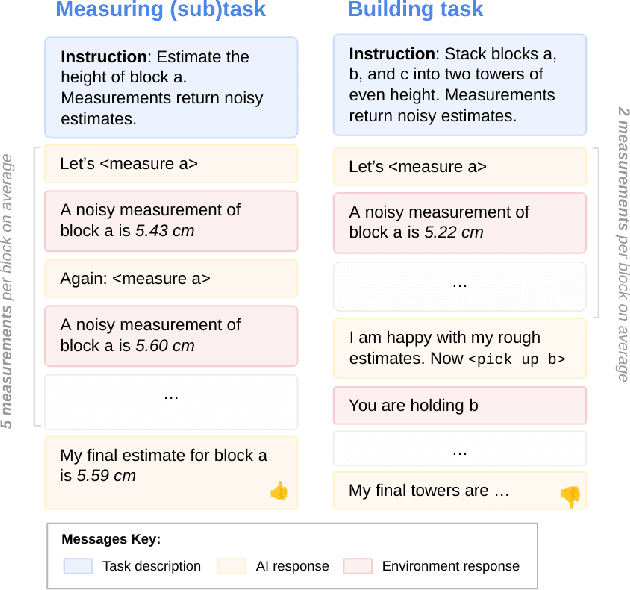


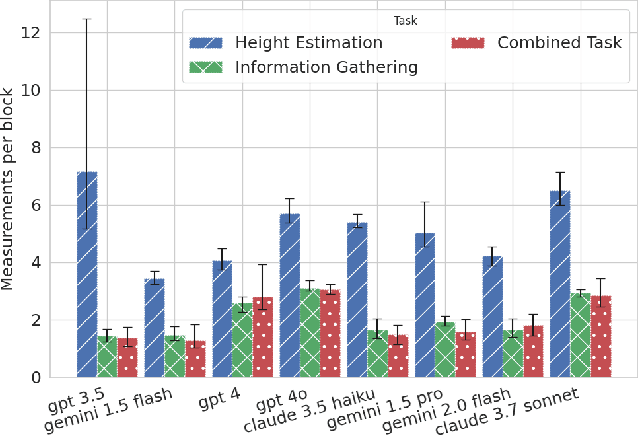
Abstract:To what extent do LLMs use their capabilities towards their given goal? We take this as a measure of their goal-directedness. We evaluate goal-directedness on tasks that require information gathering, cognitive effort, and plan execution, where we use subtasks to infer each model's relevant capabilities. Our evaluations of LLMs from Google DeepMind, OpenAI, and Anthropic show that goal-directedness is relatively consistent across tasks, differs from task performance, and is only moderately sensitive to motivational prompts. Notably, most models are not fully goal-directed. We hope our goal-directedness evaluations will enable better monitoring of LLM progress, and enable more deliberate design choices of agentic properties in LLMs.
Agency Is Frame-Dependent
Feb 06, 2025
Abstract:Agency is a system's capacity to steer outcomes toward a goal, and is a central topic of study across biology, philosophy, cognitive science, and artificial intelligence. Determining if a system exhibits agency is a notoriously difficult question: Dennett (1989), for instance, highlights the puzzle of determining which principles can decide whether a rock, a thermostat, or a robot each possess agency. We here address this puzzle from the viewpoint of reinforcement learning by arguing that agency is fundamentally frame-dependent: Any measurement of a system's agency must be made relative to a reference frame. We support this claim by presenting a philosophical argument that each of the essential properties of agency proposed by Barandiaran et al. (2009) and Moreno (2018) are themselves frame-dependent. We conclude that any basic science of agency requires frame-dependence, and discuss the implications of this claim for reinforcement learning.
Robust agents learn causal world models
Feb 26, 2024Abstract:It has long been hypothesised that causal reasoning plays a fundamental role in robust and general intelligence. However, it is not known if agents must learn causal models in order to generalise to new domains, or if other inductive biases are sufficient. We answer this question, showing that any agent capable of satisfying a regret bound under a large set of distributional shifts must have learned an approximate causal model of the data generating process, which converges to the true causal model for optimal agents. We discuss the implications of this result for several research areas including transfer learning and causal inference.
Discovering Agents
Aug 24, 2022

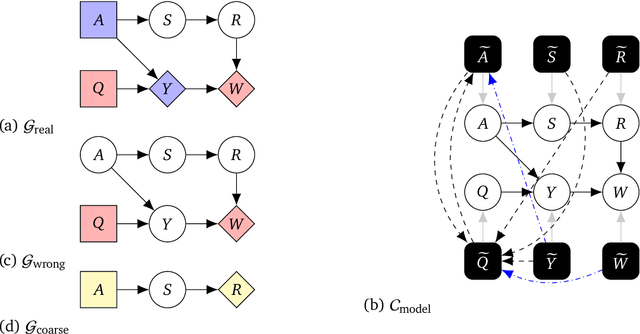

Abstract:Causal models of agents have been used to analyse the safety aspects of machine learning systems. But identifying agents is non-trivial -- often the causal model is just assumed by the modeler without much justification -- and modelling failures can lead to mistakes in the safety analysis. This paper proposes the first formal causal definition of agents -- roughly that agents are systems that would adapt their policy if their actions influenced the world in a different way. From this we derive the first causal discovery algorithm for discovering agents from empirical data, and give algorithms for translating between causal models and game-theoretic influence diagrams. We demonstrate our approach by resolving some previous confusions caused by incorrect causal modelling of agents.
Learning medical triage from clinicians using Deep Q-Learning
Mar 28, 2020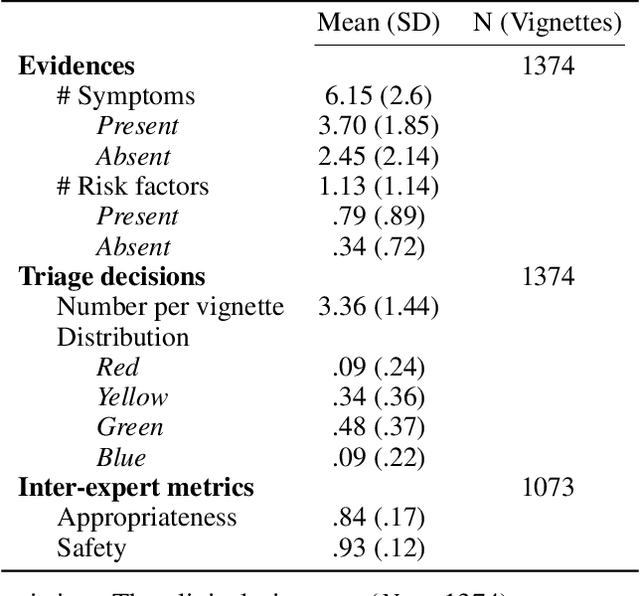
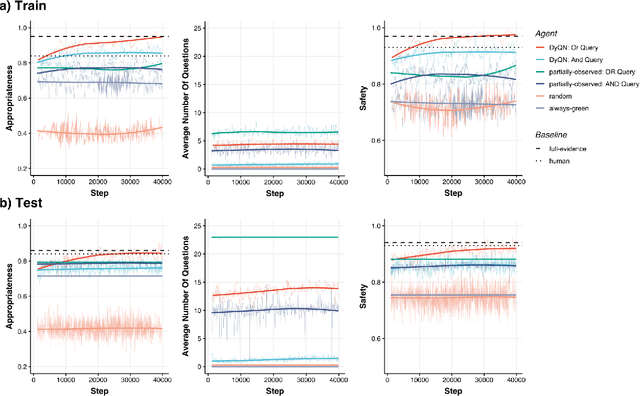
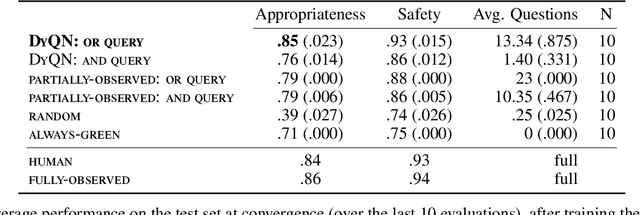
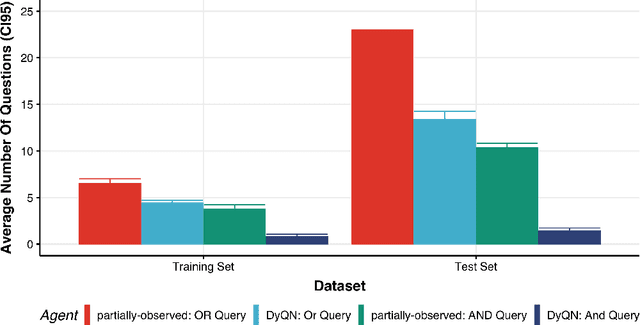
Abstract:Medical Triage is of paramount importance to healthcare systems, allowing for the correct orientation of patients and allocation of the necessary resources to treat them adequately. While reliable decision-tree methods exist to triage patients based on their presentation, those trees implicitly require human inference and are not immediately applicable in a fully automated setting. On the other hand, learning triage policies directly from experts may correct for some of the limitations of hard-coded decision-trees. In this work, we present a Deep Reinforcement Learning approach (a variant of DeepQ-Learning) to triage patients using curated clinical vignettes. The dataset, consisting of 1374 clinical vignettes, was created by medical doctors to represent real-life cases. Each vignette is associated with an average of 3.8 expert triage decisions given by medical doctors relying solely on medical history. We show that this approach is on a par with human performance, yielding safe triage decisions in 94% of cases, and matching expert decisions in 85% of cases. The trained agent learns when to stop asking questions, acquires optimized decision policies requiring less evidence than supervised approaches, and adapts to the novelty of a situation by asking for more information. Overall, we demonstrate that a Deep Reinforcement Learning approach can learn effective medical triage policies directly from expert decisions, without requiring expert knowledge engineering. This approach is scalable and can be deployed in healthcare settings or geographical regions with distinct triage specifications, or where trained experts are scarce, to improve decision making in the early stage of care.
 Add to Chrome
Add to Chrome Add to Firefox
Add to Firefox Add to Edge
Add to Edge